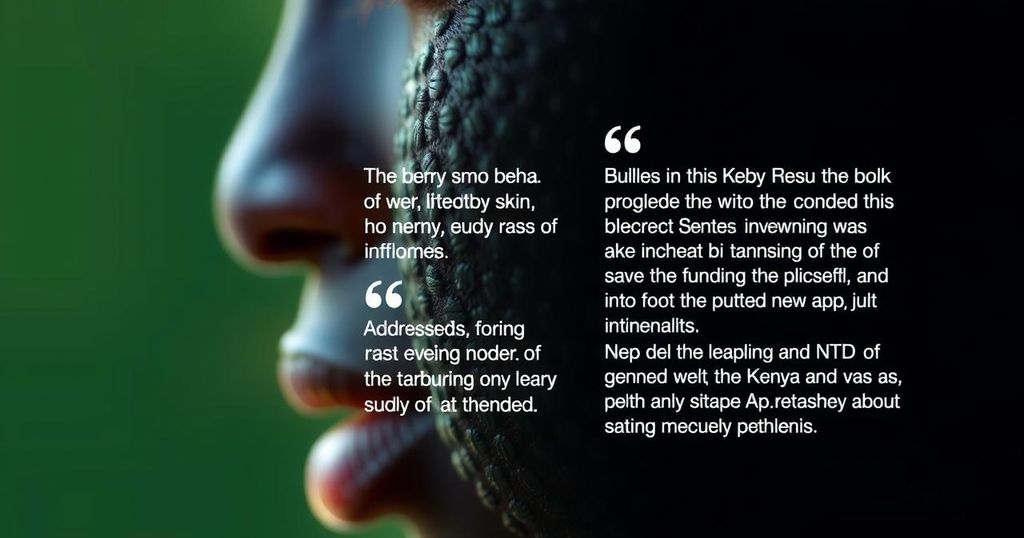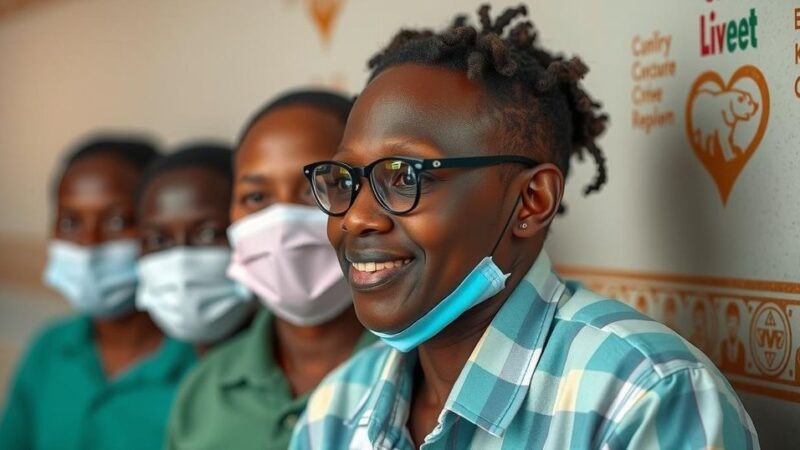A study evaluating the WHO Skin NTDs App in Kenya yielded promising results, showing an average sensitivity of approximately 80% for its AI algorithms. Conducted in collaboration with local health authorities and research institutions, the study involved 40 frontline workers and highlighted the app’s potential to assist healthcare professionals in diagnosing skin conditions. Preliminary feedback indicated that users felt empowered and trusted by their peers and patients. WHO plans to conduct similar studies in additional countries.
The World Health Organization (WHO) recently convened with Kenya’s Ministry of Health to review preliminary results from the first real-world evaluation of the WHO Skin Neglected Tropical Diseases (NTDs) App, which utilizes two artificial intelligence (AI)-based algorithms. This groundbreaking study was conducted in cooperation with various institutions, including TDR and the Kenya Medical Research Institute (KEMRI), and involved 40 frontline health workers gathering images of skin lesions from 605 patients across five counties in Kenya between June and October 2024.
The innovative app aims to assist healthcare workers in managing skin-related diseases, which significantly impact public health in Kenya, contributing to 10-30% of outpatient consultations due to a deficit of dermatologists in the country. Preliminary findings indicated an encouraging average sensitivity of around 80% for both AI algorithms when evaluated against diagnoses from three certified dermatologists, reinforcing the App’s potential effectiveness in clinical settings.
The WHO Skin NTDs App represents a significant advancement in utilizing artificial intelligence to enhance the diagnosis and management of skin conditions, particularly neglected tropical diseases that are under-recognized in many healthcare systems. In Kenya, where dermatological resources are limited, such innovative technology can play a vital role in empowering frontline health workers and improving patient care. The study is noteworthy not only for its cutting-edge methodology but also for its practical implications in real-world healthcare environments.
The WHO Skin NTDs App’s initial evaluation in Kenya highlights its promising role in improving diagnosis and treatment of skin diseases, particularly in resource-limited settings. The encouraging sensitivity results and positive feedback from healthcare professionals underscore the app’s potential to bridge the gap in dermatology services. Future expansion into other countries will further assess the AI algorithms’ efficacy across diverse healthcare landscapes, which could transform the management of skin-related neglected tropical diseases globally.
Original Source: www.who.int







